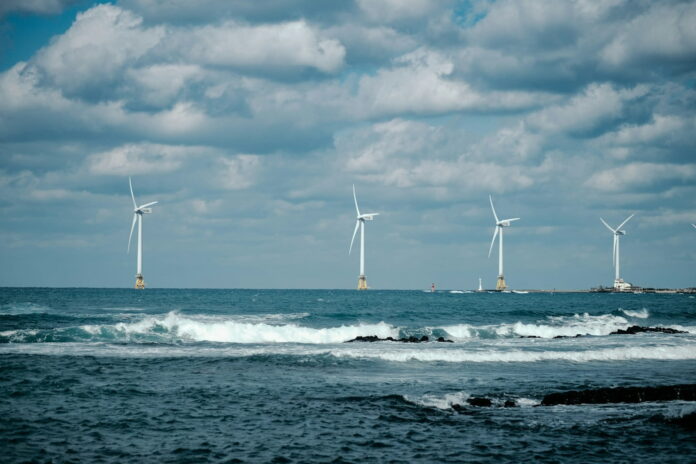The global energy landscape is undergoing a significant transformation as renewable energy sources like solar, wind, and hydro increasingly replace fossil fuels. This shift is not just a response to environmental concerns but also a strategic adaptation influencing global power dynamics. As countries invest in renewable energy technologies, the geopolitical map, traditionally shaped by oil and gas dependencies, is being redrawn.
The Rise of Renewables: Reshaping Global Power Dynamics
The ascendance of renewable energy is altering traditional power structures on a global scale. Historically, nations rich in oil and gas reserves have wielded significant influence over global economics and politics, often using energy supply as a diplomatic tool. However, as renewable energy becomes more cost-effective and technologically advanced, it democratizes energy production. Countries with little to no fossil fuel resources are now able to generate their own energy, reducing dependency on energy-exporting nations and altering long-standing power hierarchies.
This shift also encourages a new form of geopolitical alignment based on renewable technologies. Nations are increasingly forming alliances around shared interests in the development and deployment of green technologies. Furthermore, as countries like those in the European Union set ambitious targets for renewable energy adoption, they not only enhance their energy security but also position themselves as leaders in the global shift towards sustainability. This leadership may translate into geopolitical leverage, particularly through the control of technological innovations and manufacturing capabilities in renewables.
Moreover, the global race for renewable energy is spurring economic shifts. Investment in renewable energy infrastructure and technology is creating new job opportunities and fostering economic growth in regions previously dependent on imported fossil fuels. This economic shift can lead to improved national security and greater global influence for countries that successfully transition to renewable energy economies, further reshaping global power dynamics.
Geopolitical Tensions and Opportunities in the Energy Shift
As countries navigate the transition to renewable energy, new geopolitical tensions are emerging alongside significant opportunities. One major area of contention is the control over critical materials necessary for renewable technologies, such as rare earth elements, which are vital for manufacturing wind turbines and solar panels. Countries that control these resources have the potential to wield substantial influence in the renewable energy sector, leading to competition and strategic alliances.
Additionally, the shift away from fossil fuels can lead to instability in regions heavily dependent on oil and gas revenues. These regions may face economic decline and social unrest as global demand for fossil fuels decreases. The potential power vacuum could lead to geopolitical instability, influencing global security and international relations. Conversely, this scenario also presents opportunities for renewable leaders to provide technological support and investment, fostering new diplomatic ties and cooperative international relationships.
The transition also offers a platform for international collaboration on a scale previously unseen in the energy sector. Global initiatives aimed at promoting renewable energy adoption and reducing carbon emissions can help mitigate climate change and foster peace through cooperative development and shared goals. Such collaboration could lead to a more interconnected and mutually supportive world, countering the competitive aspects of the energy transition.
Future Projections: Renewable Energy and World Politics
Looking ahead, the influence of renewable energy on global geopolitics is expected to grow. As technology advances and the cost of renewables continues to fall, more countries will likely adopt these energy sources, further diminishing the geopolitical influence of traditional energy-exporting nations. This could lead to a more equitable global power structure, with a diverse array of nations emerging as energy leaders due to their innovation and investment in renewable technologies.
Moreover, the global push for a reduction in carbon emissions may see international policies and agreements increasingly geared towards supporting renewable energy adoption. This could lead to the establishment of new norms and standards governing international energy trade and cooperation, potentially leading to a more stable and cooperative international order. As countries align their energy policies with global climate goals, we may witness a significant reduction in energy-related conflicts.
Finally, the integration of renewable energy into national security strategies will play a crucial role in shaping future geopolitical landscapes. Nations that can secure their energy supplies through domestic renewables may enjoy greater geopolitical stability and reduced foreign policy conflicts. This era of renewable energy not only promises a cleaner, more sustainable environment but also a reshaped global order where energy security and climate resilience go hand in hand, influencing every aspect of international relations.
The shift towards renewable energy is set to profoundly impact global geopolitics, offering both challenges and opportunities. As this new energy paradigm unfolds, it will be crucial for policymakers, businesses, and societies to navigate the transition thoughtfully, ensuring that the global power shifts lead to a more sustainable and equitable world.
